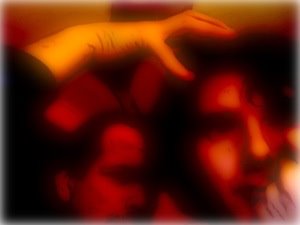The guys complete their last semester at Hogwarts with J. K. Rowling's Harry Potter and the Deathly Hallows. It is a long sad good-bye as characters will die, graduate or birth little wizards. Is it horror or not? You decide.
If you haven't read the book do not proceed further because this episode is 100% PURE SPOILER.
IT'S COCKTAIL TIME!

1 Shot Jameson Irish Whiskey
1 Shot Goldschlager
Combine, raise your glasses to Griffendor and drink it down.
Music: The Remus Lupins - I'm Going to Hogwarts from Spells from a Broken Wand.






3 comments:
Boys,
In considering the nature of horror, I would submit the following conjecture: horror is not so much the contemplation of death; that's terror. Horror is the effect caused by the subversion of the moral and spiritual laws that govern our thinking about life and death. Getting killed accidentally or even justifiably is not horror; torture and serial murder is. Death and dying as phenomena are not horror; coming back from the dead (or the dead eating the living) is. I also think that the less rational the actions of the character(s) driving the horror, the more horrible it is. Random killing is worse than killing for world domination (which is why the dementors are more horrible than Voldemort).
I suppose that depending on your particular moral code concerning the nature of life and death, different things could be horror. For example, if you believed unquestioningly in reincarnation, a book about eternal damnation on the basis of a single life might be horror. Or if you believed unquesioningly that life is a trial to be endured once, the idea of returning over and over to improve your soul's quality might seem like some kind of endless Twilight Zone episode. Even the idea of zombies might not be horror to a Voodou devotee for whom they are part of the known spiritual universe.
I think that Voldemort and the dementors are elements of horror in the HP books, but I'm not sure that their presence alone define the genre. I think HWMNBN is necessary in the context of the governing Hero's Journey model.
So there.
Sincerely yours,
David
Thank you, friend David, for our first ever thoughtful and insightful comment. Obviously the debate over the nature of horror is fraught and endless; one of the continual questions on Necronomipod is just that: Is the book we're reading horror? Which leads, every time, to the question: What is horror? I expect the two-headed Mike will bang both heads over that one as long as we keep doing this. Thanks for chiming in on the debate.
To take one small point (for I think this debate, ultimately, will be argued over small points): : Getting killed . . . justifiably is not horror." I can think of several recent horror films—especially The Devil's Rejects and Hostel, both unquestionably horror—in which the final scenes are structured around entirely justifiable killings, justifiable inasmuch as the victims in being killed are getting comeuppance for their own depravity earlier in the films. In both cases, these justifiable killings are all the more horrible because the audience is (or should be) shocked at how much they vicariously enjoy the spectacle of the killing (and torture) that the movie has so carefully conditioned them to crave. For a little while, the audience is complicit in the most vicious acts. It is part of what makes those movies so uncomfortable to watch and, arguably, what makes them great.
Mike S.
Very good point, although I think that the killing itself wouldn't be the horror trigger unless the audience had been set up to approve and feel complicit in the killing's grisliest parts, thereby being forced to subvert its (the audience's) own moral code, which hopefully holds that vicious killing is a bad thing.
Which probably lands me in the "horror is in the eye of the beholder" camp, because something only becomes horrible when it rubs the wrong way against someone's particular moral code. The vinegar and baking soda of the horror response. - d
Post a Comment